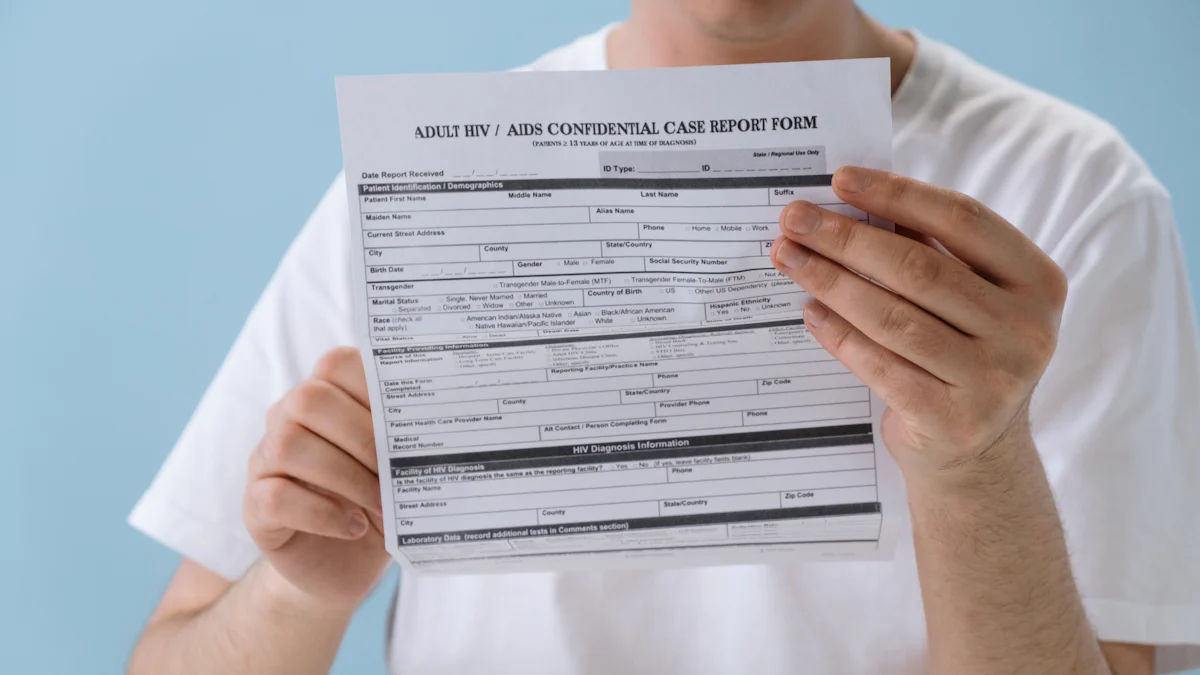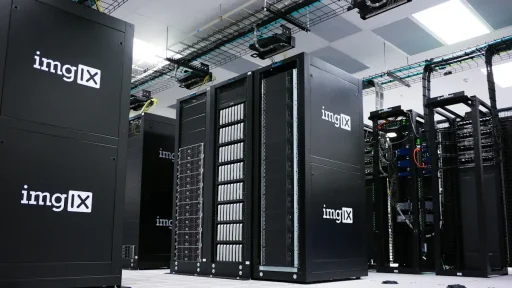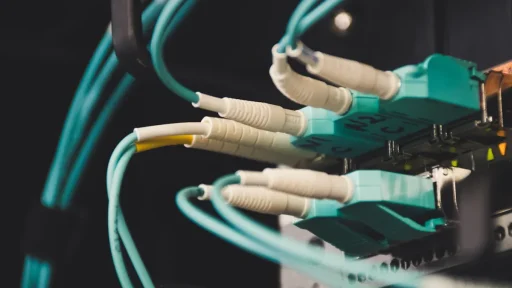

Protecting sensitive information in healthcare is essential. With over 5,887 healthcare data breaches recorded between 2009 and 2023, the risks are undeniable. These breaches have exposed millions of patients to identity theft and financial fraud. In 2024 alone, 58 million patients were impacted by data breaches. Non-compliance with data privacy requirements can lead to severe consequences, including fines up to $50,000 per violation and even imprisonment. Prioritizing patient privacy and robust data security measures builds trust and safeguards lives in an increasingly digital healthcare landscape.
Key Takeaways
Data privacy is crucial in healthcare; protecting patient information builds trust and safeguards against identity theft and fraud.
Compliance with regulations like HIPAA and GDPR is not just a legal obligation but a moral responsibility that protects both patients and healthcare organizations.
Engage all stakeholders—providers, IT professionals, compliance officers, patients, and vendors—to create a robust framework for data security.
Regular audits and risk assessments are essential for identifying vulnerabilities and ensuring adherence to data privacy standards.
Invest in employee training to empower staff as the first line of defense against data breaches and to foster a culture of compliance.
Leverage technology, such as AI and blockchain, to enhance data security and streamline compliance efforts in an evolving digital landscape.
Understanding Data Privacy Requirements in Healthcare


What Are Data Privacy Requirements?
Data privacy requirements refer to the rules and practices designed to protect sensitive information from unauthorized access, use, or disclosure. In healthcare, these requirements focus on safeguarding patient data, including medical records, billing information, and other personal details. You must ensure that this data remains confidential and secure to maintain trust and comply with legal standards.
Healthcare organizations handle vast amounts of sensitive information daily. Without proper safeguards, this data becomes vulnerable to breaches and misuse. Data privacy requirements establish clear guidelines for managing and protecting this information. These rules help you prevent unauthorized access and ensure that patients’ rights to privacy are respected.
Why Are Data Privacy Requirements Essential for Healthcare Organizations?
Protecting patient data is not just a legal obligation; it is a moral responsibility. When you prioritize data privacy, you demonstrate respect for patients’ confidentiality and build trust in your services. Trust is crucial in healthcare, where patients share personal and sensitive information with the expectation of security.
Non-compliance with data privacy requirements can lead to severe consequences. Breaches expose patients to risks like identity theft and financial fraud. They also result in hefty fines, legal actions, and reputational damage for your organization. By adhering to these requirements, you safeguard your patients and protect your organization from potential harm.
Data privacy also plays a vital role in improving healthcare outcomes. When patients trust that their information is secure, they are more likely to share accurate and complete details about their health. This transparency enables you to provide better care and make informed decisions.
Key Stakeholders in Ensuring Healthcare Data Security
Ensuring healthcare data security requires collaboration among various stakeholders. Each group plays a critical role in maintaining the integrity and confidentiality of patient information:
Healthcare Providers: As a provider, you are responsible for implementing data privacy measures in your practice. This includes training staff, securing systems, and following established protocols.
IT Professionals: Your IT team ensures that technical safeguards, such as encryption and access controls, are in place. They monitor systems for vulnerabilities and respond to potential threats.
Compliance Officers: Appointing a compliance officer helps you oversee adherence to data privacy requirements. This individual ensures that your organization meets legal and regulatory standards.
Patients: Patients also play a role by understanding their rights and reporting any concerns about data misuse. Educating them about data privacy fosters a culture of shared responsibility.
Third-Party Vendors: If you work with external vendors, ensure they follow the same data privacy standards. Collaborating with HIPAA-compliant partners minimizes risks associated with outsourcing.
By involving all stakeholders, you create a robust framework for healthcare data security. This collective effort protects sensitive information and strengthens trust between patients and providers.
Key Regulations Governing Healthcare Data Privacy
Understanding the regulations that govern healthcare data privacy is essential for ensuring the security of sensitive patient information. These regulations establish clear guidelines for handling, storing, and sharing protected health information (PHI). By adhering to these rules, you can achieve regulatory compliance and protect your organization from legal and financial risks.
HIPAA (Health Insurance Portability and Accountability Act)
The Health Insurance Portability and Accountability Act (HIPAA) is a cornerstone of healthcare data privacy in the United States. It sets strict standards for safeguarding PHI and imposes heavy penalties for violations. HIPAA ensures that healthcare organizations implement robust defenses to protect patient information from unauthorized access, breaches, and other threats.
Privacy Rule
The HIPAA Privacy Rule focuses on protecting individuals’ medical records and personal health information. It establishes patients’ rights over their data, including the right to access and request corrections. As a healthcare provider, you must ensure that PHI remains confidential and is only disclosed for authorized purposes. This rule emphasizes the importance of minimizing the use and disclosure of PHI to what is necessary.
Security Rule
The HIPAA Security Rule addresses the technical and physical safeguards required to protect electronic PHI (ePHI). It mandates measures such as encryption, access controls, and regular risk assessments. You must implement these safeguards to prevent unauthorized access and ensure the integrity of patient data. Compliance with the HIPAA Security Rule is critical for maintaining data center compliance in the healthcare sector.
Breach Notification Rule
The Breach Notification Rule requires you to notify affected individuals, the Department of Health and Human Services (HHS), and, in some cases, the media, in the event of a data breach involving PHI. Timely reporting is crucial for mitigating risks and maintaining transparency. This rule underscores the importance of proactive measures to prevent breaches and protect patient trust.
HITECH (Health Information Technology for Economic and Clinical Health Act)
The HITECH Act complements HIPAA by promoting the adoption of electronic health records (EHRs) and strengthening data privacy and security requirements. It expands the scope of HIPAA regulations and increases penalties for non-compliance. HITECH compliance involves conducting regular audits, implementing advanced security measures, and ensuring that all business associates adhere to the same standards. By following these guidelines, you can enhance the security of your health information systems and achieve data center compliance.
GDPR (General Data Protection Regulation) and Its Relevance to Healthcare
The General Data Protection Regulation (GDPR) is a European Union regulation that has global implications for healthcare organizations. If you handle the data of EU citizens, you must comply with GDPR, regardless of your location. GDPR emphasizes the protection of personal data and grants individuals greater control over their information.
For healthcare providers, GDPR compliance involves obtaining explicit consent for data processing, ensuring data accuracy, and implementing robust security measures. While GDPR differs from HIPAA in its scope and requirements, both regulations share the goal of protecting sensitive information and upholding patient rights. Adhering to GDPR standards can enhance your organization’s reputation and demonstrate a commitment to global data privacy principles.
State-Specific Regulations (e.g., CCPA – California Consumer Privacy Act)
State-specific regulations play a significant role in shaping healthcare data privacy practices. While federal laws like HIPAA provide a foundational framework, individual states often introduce additional requirements to address unique privacy concerns. One prominent example is the California Consumer Privacy Act (CCPA), which has set a high standard for data privacy in the United States.
The CCPA grants California residents greater control over their personal information. As a healthcare provider, you must understand how this law applies to your organization, especially if you handle data from California residents. The CCPA requires you to disclose the types of personal information collected, the purpose of collection, and any third parties with whom the data is shared. This transparency fosters trust and ensures compliance with state-specific mandates.
Under the CCPA, patients have the right to access their personal information, request its deletion, and opt out of its sale. Although healthcare data protected under HIPAA is generally exempt from the CCPA, other types of personal information, such as marketing data or website activity, may still fall under its scope. You must carefully evaluate your data handling practices to ensure compliance with both HIPAA and state-specific regulations like the CCPA.
Other states have also introduced privacy laws that impact healthcare organizations. For instance:
Virginia Consumer Data Protection Act (VCDPA): This law emphasizes consumer rights and data security, requiring you to implement robust safeguards for personal information.
Colorado Privacy Act (CPA): Similar to the CCPA, this act mandates transparency and accountability in data processing activities.
To navigate these regulations effectively, you should adopt a proactive approach. Conduct regular audits to identify gaps in compliance. Train your staff to understand the nuances of state-specific laws. Partnering with experts in data center compliance can also help you meet the technical and legal requirements of these regulations. By staying informed and prepared, you can protect patient data while adhering to the diverse privacy standards across states.
HIPAA Compliant Data Centers and Data Center Compliance Checklist
Ensuring the security of sensitive healthcare data requires a robust framework. HIPAA compliant data centers play a critical role in safeguarding protected health information (PHI) and electronic protected health information (ePHI). These facilities meet stringent security standards to comply with HIPAA regulations, providing a secure environment for storing and processing healthcare data. To achieve compliance, you must follow a structured HIPAA compliance checklist that addresses administrative, physical, and technical safeguards.
Administrative Safeguards
Administrative safeguards form the foundation of HIPAA compliance. These measures focus on policies, procedures, and oversight to protect ePHI.
Appointing a HIPAA Privacy Officer
You need to designate a HIPAA Privacy Officer to oversee compliance efforts. This individual ensures that your organization adheres to privacy regulations and manages the protection of PHI. The Privacy Officer also educates staff about data privacy practices and monitors compliance with established protocols.
Conducting Regular Risk Analyses
Regular HIPAA risk assessments are essential for identifying vulnerabilities in your systems. These analyses help you understand potential threats to ePHI and implement necessary safeguards. By conducting these assessments, you can proactively address risks and maintain compliance with HIPAA standards.
Physical Safeguards
Physical safeguards protect the physical infrastructure where ePHI is stored or accessed. These measures ensure that unauthorized individuals cannot access sensitive data.
Facility Access Controls
You must implement strict facility access controls to secure areas where ePHI is stored. This includes using keycards, biometric systems, or security personnel to limit access to authorized personnel only. Monitoring and logging access activities further enhance security.
Device and Media Security
Securing devices and media that store ePHI is crucial. You should establish protocols for the disposal and reuse of hardware to prevent unauthorized access. Encrypting data on portable devices and maintaining an inventory of equipment also contribute to physical safeguards.
Technical Safeguards
Technical safeguards focus on the technology and processes used to protect ePHI. These measures ensure that data remains secure during storage and transmission.
Encryption and Decryption of ePHI
Data encryption is a vital component of technical safeguards. Encrypting ePHI ensures that even if unauthorized access occurs, the data remains unreadable. You should also implement decryption mechanisms to allow authorized users to access the information securely.
Access Control and Authentication Mechanisms
Access control mechanisms restrict ePHI access to authorized individuals. You must use unique user IDs, strong passwords, and multi-factor authentication to verify user identities. These measures prevent unauthorized access and maintain the integrity of sensitive data.
HIPAA compliant data centers and HIPAA compliant private clouds integrate these safeguards to minimize security incidents and protect PHI. By following the HIPAA compliance checklist, you can ensure data center compliance and create a secure environment for managing healthcare information.
Policies and Procedures
Incident Response Planning
Incident response planning is a critical component of maintaining data security in healthcare. You need a well-structured plan to address potential breaches or security incidents involving protected health information (PHI). This plan ensures that your organization can respond swiftly and effectively to minimize damage and restore normal operations.
Start by identifying potential threats to your systems. These could include cyberattacks, unauthorized access, or accidental data exposure. Once you understand the risks, outline specific steps to take when an incident occurs. Your plan should include:
Detection and Reporting: Establish clear protocols for identifying and reporting security incidents. Train your staff to recognize suspicious activities and report them immediately.
Containment: Define measures to isolate affected systems or data to prevent further damage. This might involve disconnecting compromised devices or restricting access to certain areas.
Investigation: Assign a team to investigate the incident. They should determine the cause, assess the impact, and identify vulnerabilities that need addressing.
Notification: Follow legal requirements for notifying affected individuals and regulatory bodies. For example, the HIPAA Breach Notification Rule mandates timely communication in case of a breach.
Recovery: Develop a strategy to restore systems and data. This could involve restoring backups, patching vulnerabilities, and implementing additional safeguards.
Regularly test your incident response plan through simulations or drills. This practice helps you identify weaknesses and improve your preparedness. A robust plan not only protects patient data but also demonstrates your commitment to compliance and trustworthiness.
Regular Audits and Assessments
Conducting regular audits and assessments is essential for maintaining compliance with data privacy regulations. These evaluations help you identify gaps in your policies and procedures, ensuring that your organization remains aligned with HIPAA standards.
Audits should focus on reviewing how your organization handles PHI. Examine access logs, data storage practices, and employee adherence to security protocols. Look for any deviations from established procedures and address them promptly. Regular audits also provide an opportunity to update your practices in response to evolving threats or regulatory changes.
Risk assessments are another vital tool for safeguarding sensitive information. These assessments evaluate your organization’s technical, physical, and administrative safeguards to identify vulnerabilities. Qualified experts, such as those skilled in HIPAA security measures evaluation, can assist in this process. They analyze your systems and propose strategies to mitigate risks effectively.
“The HIPAA Expert Determination method is a process by which qualified experts with requisite knowledge and skills evaluate a healthcare organization’s security measures in order to assess potential risks to protected health information (PHI).” – Qualified experts in HIPAA security measures evaluation
By integrating these audits and assessments into your routine operations, you create a proactive approach to data security. This practice not only strengthens your defenses but also ensures that your organization remains compliant with regulations. HIPAA compliant data centers often incorporate these evaluations into their operations, providing a secure environment for managing healthcare data.
Common Challenges in Healthcare Data Security and Compliance
Evolving Cybersecurity Threats
Cybersecurity threats in healthcare continue to grow at an alarming rate. Hackers target healthcare systems because of the vast amount of sensitive information they hold, including medical records and financial details. Techniques such as ransomware, phishing, and malware attacks have become increasingly sophisticated, making it harder for organizations to defend themselves.
From January to August 2024, 58 million patients were affected by data breaches, highlighting the urgency of addressing these threats. Each breach compromises not only data but also patient trust and safety. As a healthcare provider, you must stay vigilant and adopt proactive measures to counter these evolving risks. Regularly updating your cybersecurity protocols and investing in advanced threat detection tools can help you safeguard healthcare data security.
Lack of Employee Awareness and Training
Employees play a critical role in maintaining data security, yet many lack the necessary training to handle sensitive information responsibly. Human error remains one of the leading causes of data breaches in healthcare. For example, an employee might fall victim to a phishing email or accidentally expose patient data through improper data handling and security practices.
To address this challenge, you should implement continuous training programs for your staff. These programs should focus on recognizing potential threats, following secure data handling procedures, and understanding the importance of compliance with regulations like HIPAA. Educating your team empowers them to act as the first line of defense against breaches, strengthening your overall healthcare data security framework.
Balancing Accessibility with Security
Healthcare providers face the unique challenge of balancing accessibility with security. Medical professionals need quick access to patient data to provide timely care, but this accessibility can create vulnerabilities. Overly restrictive security measures may hinder workflows, while lax controls increase the risk of unauthorized access.
To strike the right balance, you should adopt solutions that prioritize both security and usability. Implementing role-based access controls ensures that only authorized personnel can view specific data. Encryption safeguards sensitive information during transmission, while multi-factor authentication adds an extra layer of protection. By integrating these measures, you can maintain efficient operations without compromising the security of healthcare data.
Managing Third-Party Vendors and HIPAA Compliant Colocation Services
Managing third-party vendors is a critical aspect of maintaining healthcare data security. Vendors often provide essential services, such as billing, IT support, or cloud storage, which streamline operations and improve patient care. However, these partnerships can introduce significant risks to protected health information (PHI). You must ensure that every vendor handling PHI complies with data privacy regulations like HIPAA.
Third-party vendors often become targets for cyberattacks due to their access to sensitive healthcare data. The increasing reliance on electronic health records (EHRs) and Internet of Things (IoT) devices, such as fitness trackers and pacemakers, has amplified these risks. Hackers exploit vulnerabilities in vendor systems to gain unauthorized access to patient information. To mitigate these threats, you should carefully evaluate your vendors’ security practices and ensure they align with HIPAA standards.
A HIPAA compliant colocation service can help address these challenges. These services provide secure environments for storing and managing healthcare data. They implement robust safeguards, including encryption, access controls, and regular risk assessments, to protect PHI. By partnering with a HIPAA compliant colocation provider, you can reduce the risk of data breaches and ensure compliance with regulatory requirements.
To effectively manage third-party vendors, follow these steps:
Conduct Vendor Risk Assessments
Evaluate each vendor’s security measures and compliance with HIPAA regulations. Identify potential vulnerabilities and address them before sharing sensitive data.Sign Business Associate Agreements (BAAs)
A BAA outlines the vendor’s responsibilities for protecting PHI. Ensure that all agreements comply with HIPAA requirements and clearly define accountability.Monitor Vendor Activities
Regularly review vendor performance and data handling practices. Use audits and assessments to verify compliance and identify areas for improvement.Provide Training and Support
Educate your vendors about HIPAA regulations and your organization’s data privacy policies. Collaboration fosters a shared commitment to protecting patient information.
By implementing these strategies, you can build strong, secure partnerships with third-party vendors. This approach not only safeguards PHI but also enhances trust and reliability in your healthcare services.
Solutions to Overcome Compliance Challenges
Leveraging Technology for Healthcare Data Security
AI-Powered Threat Detection
Artificial intelligence (AI) has become a game-changer in healthcare data security. AI-powered threat detection systems analyze vast amounts of data to identify unusual patterns or potential breaches. These systems work in real-time, allowing you to respond to threats before they escalate. For example, AI can detect phishing attempts or malware by analyzing email content and user behavior. This proactive approach minimizes risks and ensures the safety of sensitive patient information.
AI also enhances your ability to predict and prevent cyberattacks. By learning from past incidents, AI systems continuously improve their threat detection capabilities. This adaptability makes them an essential tool for maintaining healthcare data security in an ever-evolving digital landscape. Incorporating AI into your security framework not only strengthens your defenses but also demonstrates your commitment to protecting patient data.
Blockchain for Secure Data Sharing
Blockchain technology offers a revolutionary solution for secure data sharing in healthcare. It creates a decentralized and tamper-proof ledger, ensuring the authenticity and confidentiality of medical records. With blockchain, you can track every interaction with patient data, providing a transparent and auditable trail. This feature is particularly valuable for maintaining regulatory compliance and building trust with patients.
Blockchain also enables secure data sharing between healthcare providers, patients, and third-party vendors. By eliminating intermediaries, it reduces the risk of data breaches and unauthorized access. Additionally, blockchain allows patients to control their data, empowering them to decide who can access their information. Integrating blockchain into your operations enhances healthcare data security while improving efficiency and patient satisfaction.
Building a Culture of Compliance
Continuous Training Programs
Educating your staff is crucial for fostering a culture of compliance. Continuous training programs ensure that employees understand the importance of data privacy and their role in maintaining it. These programs should cover topics like recognizing phishing attempts, following secure data handling practices, and adhering to regulatory requirements.
Interactive workshops and regular updates keep your team informed about the latest threats and safeguards. By investing in employee education, you reduce the risk of human error, which is a leading cause of data breaches. A well-trained workforce acts as the first line of defense, strengthening your organization’s overall healthcare data security framework.
Leadership Commitment to Data Privacy
Leadership plays a pivotal role in promoting a culture of compliance. When leaders prioritize data privacy, it sets the tone for the entire organization. As a leader, you should actively support initiatives that enhance data security and allocate resources for implementing robust safeguards.
Demonstrating commitment involves more than just policy enforcement. Regularly communicating the importance of data privacy and recognizing employees who uphold these standards fosters a sense of shared responsibility. Leadership commitment not only ensures regulatory compliance but also builds trust among patients and stakeholders.
Partnering with HIPAA Compliant Data Centers and Compliance Experts
Collaborating with HIPAA compliant data centers is a strategic move for enhancing data security. These facilities meet stringent standards for protecting sensitive healthcare information. They implement advanced safeguards, such as encryption, access controls, and regular risk assessments, to ensure the safety of your data. By partnering with such data centers, you can focus on delivering quality care while leaving the technical aspects of data security to experts.
Compliance experts also play a vital role in navigating complex regulations. They provide guidance on meeting legal requirements and help you identify gaps in your current practices. Working with these professionals ensures that your organization remains aligned with regulatory compliance standards. Together, HIPAA compliant data centers and compliance experts create a robust framework for managing healthcare data securely and efficiently.
Future Trends in Healthcare Data Privacy


The Role of Artificial Intelligence in Enhancing Data Security
Artificial intelligence (AI) is transforming healthcare data security. AI systems analyze vast amounts of data to detect unusual patterns or potential threats in real time. These systems identify risks like phishing attempts, malware, or unauthorized access before they escalate. By acting swiftly, you can prevent breaches and protect sensitive patient information.
AI also excels at learning from past incidents. It adapts to new threats by improving its detection capabilities over time. For example, AI algorithms can monitor network activity and flag anomalies that might indicate a cyberattack. This proactive approach strengthens your defenses against evolving cybersecurity challenges.
AI’s role extends beyond threat detection. It supports healthcare providers in managing large datasets securely. For instance, AI can automate encryption processes, ensuring that patient data remains protected during storage and transmission. By integrating AI into your security framework, you enhance your ability to safeguard healthcare data while maintaining compliance with privacy regulations.
Research Insight: A study published in the 2018 IEEE International Conference on Big Data highlights how AI’s analytical skills, combined with secure data management, make it a powerful tool for protecting sensitive healthcare information.
Blockchain Technology for Improved Data Integrity
Blockchain technology is revolutionizing data integrity in healthcare. It creates a decentralized and tamper-proof ledger, ensuring that every interaction with patient data is transparent and secure. With blockchain, you can track data access and modifications, providing an auditable trail that enhances trust and accountability.
One of blockchain’s key strengths lies in its ability to prevent unauthorized changes to data. Each transaction is encrypted and linked to the previous one, making it nearly impossible to alter records without detection. This feature ensures the authenticity of medical records and reduces the risk of fraud.
Blockchain also facilitates secure data sharing among healthcare providers, patients, and third-party vendors. By eliminating intermediaries, it minimizes vulnerabilities and enhances efficiency. Patients gain greater control over their data, deciding who can access their information and for what purpose. This empowerment fosters trust and aligns with the growing emphasis on patient-centric care.
Scientific Research Findings: According to a study in IEEE Transactions on Services Computing, blockchain enhances data security and privacy in healthcare by providing a robust framework for secure data transmission and storage.
Increasing Focus on Patient-Centric Data Privacy
The healthcare industry is shifting toward patient-centric data privacy. This approach prioritizes patients’ rights to control their personal information. As a healthcare provider, you must ensure that patients understand how their data is collected, used, and shared. Transparency builds trust and encourages patients to engage more actively in their care.
Patient-centric privacy involves giving individuals greater control over their data. For example, patients can grant or revoke access to their medical records through secure platforms. This level of control not only protects their privacy but also empowers them to make informed decisions about their health.
Technology plays a vital role in supporting this trend. Blockchain and AI enable secure and efficient data management, ensuring that patients’ preferences are respected. By adopting these technologies, you demonstrate your commitment to safeguarding patient information and upholding their rights.
Key Insight: The integration of blockchain and AI in healthcare not only enhances data security but also aligns with the growing demand for patient-centric privacy solutions, as highlighted in recent studies on healthcare innovation.
The Impact of Emerging Regulations on Data Center Compliance
Emerging regulations in healthcare data privacy are reshaping the landscape of data center compliance. As a healthcare provider, you must adapt to these changes to ensure the security of sensitive patient information and maintain compliance with evolving standards. These regulations demand stricter safeguards, greater transparency, and a proactive approach to managing protected health information (PHI).
Stricter Safeguards for PHI
New regulations emphasize the need for robust safeguards to protect PHI. You must implement advanced security measures to address vulnerabilities in your systems. Encryption, multi-factor authentication, and continuous monitoring are now essential components of a compliant data center. These measures not only protect patient data but also reduce the risk of breaches that could lead to severe penalties.
HIPAA Compliance in Data Centers highlights the importance of implementing safeguards to ensure the confidentiality, integrity, and security of PHI. Data centers must meet these requirements to minimize security incidents and protect patient trust.
Increased Focus on Transparency
Transparency has become a cornerstone of emerging data privacy regulations. You are now required to provide clear documentation of how patient data is collected, stored, and shared. This includes maintaining detailed records of access logs, security audits, and incident response plans. By fostering transparency, you build trust with patients and demonstrate your commitment to protecting their information.
State-specific laws, such as the California Consumer Privacy Act (CCPA), further emphasize the importance of transparency. These regulations require you to disclose the purpose of data collection and any third parties involved. Adhering to these standards ensures compliance and strengthens your reputation as a trustworthy healthcare provider.
Proactive Compliance Strategies
Regulatory pressure is intensifying, making proactive compliance strategies more critical than ever. You must stay ahead of emerging regulations by conducting regular risk assessments and updating your security protocols. Partnering with federally compliant infrastructure providers can help you navigate these challenges effectively.
According to the Federally Compliant Infrastructure for ePHI, the demand for compliant infrastructure is growing as healthcare organizations face increasingly complex data privacy requirements. Collaborating with experts ensures that your data center meets the highest standards of security and compliance.
The Role of Technology in Meeting Compliance
Technology plays a vital role in helping you meet the demands of emerging regulations. Advanced tools, such as artificial intelligence (AI) and blockchain, enhance your ability to secure patient data and maintain compliance. AI-powered systems detect potential threats in real time, while blockchain provides a transparent and tamper-proof record of data interactions.
A study on Data Privacy Regulations in Healthcare highlights the importance of leveraging technology to protect medical records and ensure the security of health information systems. By integrating these tools into your operations, you can address regulatory challenges and safeguard sensitive data.
Preparing for the Future
To prepare for the future, you must adopt a proactive mindset and embrace continuous improvement. Regularly review your data handling practices and stay informed about changes in regulations. Training your staff on compliance requirements and investing in secure infrastructure will position your organization for success in an evolving regulatory environment.
Emerging regulations present challenges, but they also offer opportunities to strengthen your data security framework. By prioritizing compliance and leveraging innovative solutions, you can protect patient information, build trust, and ensure the long-term success of your healthcare organization.
Adhering to data privacy requirements is essential for protecting sensitive patient information and maintaining trust in healthcare. Proactive measures, such as regular audits and compliance programs, help you identify gaps, reduce legal risks, and streamline operations. By adopting a compliance checklist, you create a defensible position that safeguards your organization and fosters positive relationships with patients and stakeholders. Staying informed about future trends ensures you remain prepared for evolving challenges. Start your journey toward compliance today by evaluating your current data privacy practices and prioritizing patient security.
FAQ
What role do laws and regulations play in governing data privacy in healthcare?
Laws and regulations establish the foundation for protecting sensitive patient information. In healthcare, key regulations like the Health Insurance Portability and Accountability Act (HIPAA) and the General Data Protection Regulation (GDPR) ensure the confidentiality, security, and integrity of health data. HIPAA focuses on safeguarding protected health information (PHI) in the United States, while GDPR applies to organizations handling the data of European Union citizens. These laws set strict standards for data handling, ensuring that healthcare providers maintain trust and comply with legal obligations.
Key Takeaway: Adhering to these regulations not only protects patient data but also shields your organization from legal and financial risks.
How can individuals protect their data privacy in healthcare?
You can take several steps to safeguard your personal health information. Always verify the identity of anyone requesting your data, especially through unsolicited emails or phone calls. Avoid sharing sensitive details unless you are certain of the recipient’s legitimacy. Regularly review your medical records to ensure accuracy and detect any unauthorized changes. Staying informed about your rights under laws like HIPAA empowers you to take control of your data privacy.
Tip: Be cautious of phishing attempts and report suspicious activities to your healthcare provider immediately.
What are some risks associated with data privacy in healthcare?
Healthcare data faces numerous threats, including unauthorized access, data breaches, and identity theft. Hackers often target medical records, which contain valuable information like social security numbers and financial details. This stolen data can be sold on the dark web or used for fraudulent activities, such as medical identity theft. Additionally, compromised data can lead to reputational damage for healthcare organizations and loss of trust among patients.
Did You Know? Unauthorized access to healthcare data can result in significant financial losses and legal consequences for both individuals and organizations.
What steps can healthcare organizations take to protect patient data privacy?
Healthcare organizations must adopt a proactive approach to safeguard patient information. Key steps include:
Implementing secure technology systems with encryption and access controls.
Conducting regular security risk assessments to identify vulnerabilities.
Training employees on privacy policies and best practices.
Monitoring systems for unauthorized access or suspicious activities.
Partnering with third-party vendors that comply with stringent data security protocols.
By following these measures, you can create a robust framework for protecting sensitive healthcare data.
Why is HIPAA compliance critical for healthcare providers?
HIPAA compliance ensures that healthcare providers protect patient information and adhere to legal standards. Non-compliance can result in severe penalties, including fines and reputational harm. By meeting HIPAA requirements, you demonstrate your commitment to patient privacy and build trust with those you serve. Compliance also helps you avoid breaches, which can disrupt operations and compromise patient safety.
Remember: HIPAA compliance is not optional—it is a legal and ethical responsibility.
How does GDPR impact healthcare organizations outside the European Union?
If your organization handles the data of EU citizens, GDPR applies to you, regardless of your location. GDPR emphasizes transparency, consent, and robust security measures for personal data. Healthcare providers must obtain explicit consent for data processing, ensure data accuracy, and implement safeguards to protect patient information. Complying with GDPR enhances your reputation and demonstrates a global commitment to data privacy.
What should you do if you suspect a data breach in your healthcare organization?
If you suspect a data breach, act immediately. Follow these steps:
Notify your organization’s compliance officer or IT team.
Contain the breach by isolating affected systems or data.
Investigate the incident to determine its cause and scope.
Report the breach to affected individuals and regulatory authorities, as required by laws like HIPAA.
Implement corrective actions to prevent future breaches.
Pro Tip: Having an incident response plan in place ensures a swift and effective reaction to potential breaches.
How can technology help improve healthcare data security?
Advanced technologies play a vital role in enhancing data security. Artificial intelligence (AI) detects threats in real time by analyzing patterns and identifying anomalies. Blockchain technology ensures data integrity by creating tamper-proof records and enabling secure data sharing. Encryption protects sensitive information during storage and transmission. By leveraging these tools, you can strengthen your defenses against cyber threats and maintain compliance with data privacy regulations.
What is the importance of training employees on data privacy?
Employee training is essential for maintaining data security. Many breaches occur due to human error, such as falling for phishing scams or mishandling sensitive information. Regular training programs educate your staff on recognizing threats, following secure practices, and adhering to regulations like HIPAA. A well-informed team acts as the first line of defense, reducing risks and ensuring compliance.
Insight: Continuous education fosters a culture of accountability and vigilance within your organization.
How can partnering with HIPAA-compliant vendors benefit your organization?
Collaborating with HIPAA-compliant vendors ensures that third-party services meet the same high standards for data security. These vendors implement safeguards like encryption, access controls, and regular risk assessments to protect patient information. By choosing compliant partners, you minimize risks associated with outsourcing and maintain trust with your patients.
Key Point: Always sign a Business Associate Agreement (BAA) with vendors to clearly define their responsibilities for protecting PHI.






